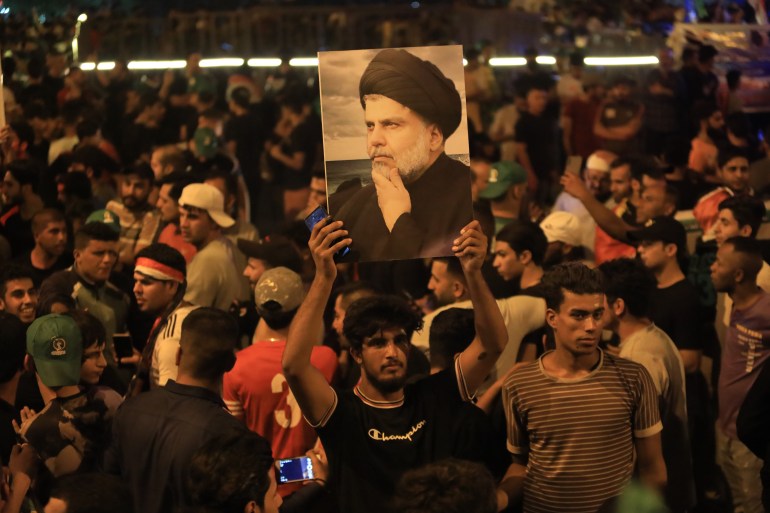An American magazine said that the leader of the Sadrist movement in Iraq, Muqtada al-Sadr, has become the best option for the United States to secure its interests, after he was its archenemy.
In an analysis published by journalist Anshal Vohra, the American magazine Foreign Policy indicated that the Iraqis took an unprecedented step in the legislative elections that took place earlier this month, by favoring Muqtada al-Sadr, whom she described as the Shiite leader who promotes of a national agenda, in addition to their rejection of the "Al-Fateh Alliance" led by Hadi al-Amiri, which includes armed Shiite factions backed by Iran.
The share of the "Al-Fateh Alliance" fell from 48 parliamentary seats in 2018 to only 15 this year.
On the other hand, the Sadrist bloc - led by al-Sadr - won 73 seats in parliament, after its share was 54 in the past, which gives it the final say in the next Iraqi parliament.
In her analysis in the magazine, Vohra said that factions in the Popular Mobilization Forces - which started as an anti-IS force - are accused of extortion and extrajudicial killings.
The writer says that al-Sadr boosted his popularity through promises he made to Iraqis to carry out political reforms (Anatolia)
rising popularity
By contrast, al-Sadr boosted his popularity through promises to Iraqis of political reforms aimed at weakening sectarianism, building a civil society, ending Iranian interference in Iraq, and removing US forces from the country.
The magazine's analysis highlighted that Sadr's undoubted hostility to the United States had earned him a bad reputation among Americans in the years following the US invasion of Iraq in 2003, when he unleashed his Shiite militias to target US forces in Iraq.
Despite this - and the writer's words - the US administration should now be happy with the new status that Al-Sadr has won as an Iraqi national leader.
The writer said that despite the many questions about what can be achieved from Sadr's agenda, the indisputable fact is that Sadr has emerged as the only political leader in Iraq who is popular enough to push for the changes the country needs, including dismantling the sectarian quota for political positions, and containing Factions supported by Iran.
Accordingly, the rise of al-Sadr serves American interests.
She highlighted that Al-Sadr is not America's man in Iraq, but he is also not Iran's man, and his ambition to contain Iran intersects with the ambition of the United States and its allies to limit Iran's influence in the region.
And I concluded that the Iraqis realize that al-Sadr does not have a magic solution to their country's many crises, and neither the politics of nepotism nor corruption will disappear overnight under his leadership.
Nevertheless, Sadr's strong voice supports the desperate and weak masses who seek to bring about change in their country and share in its oil wealth through access to jobs, better housing, and a satisfactory electricity supply for all.

